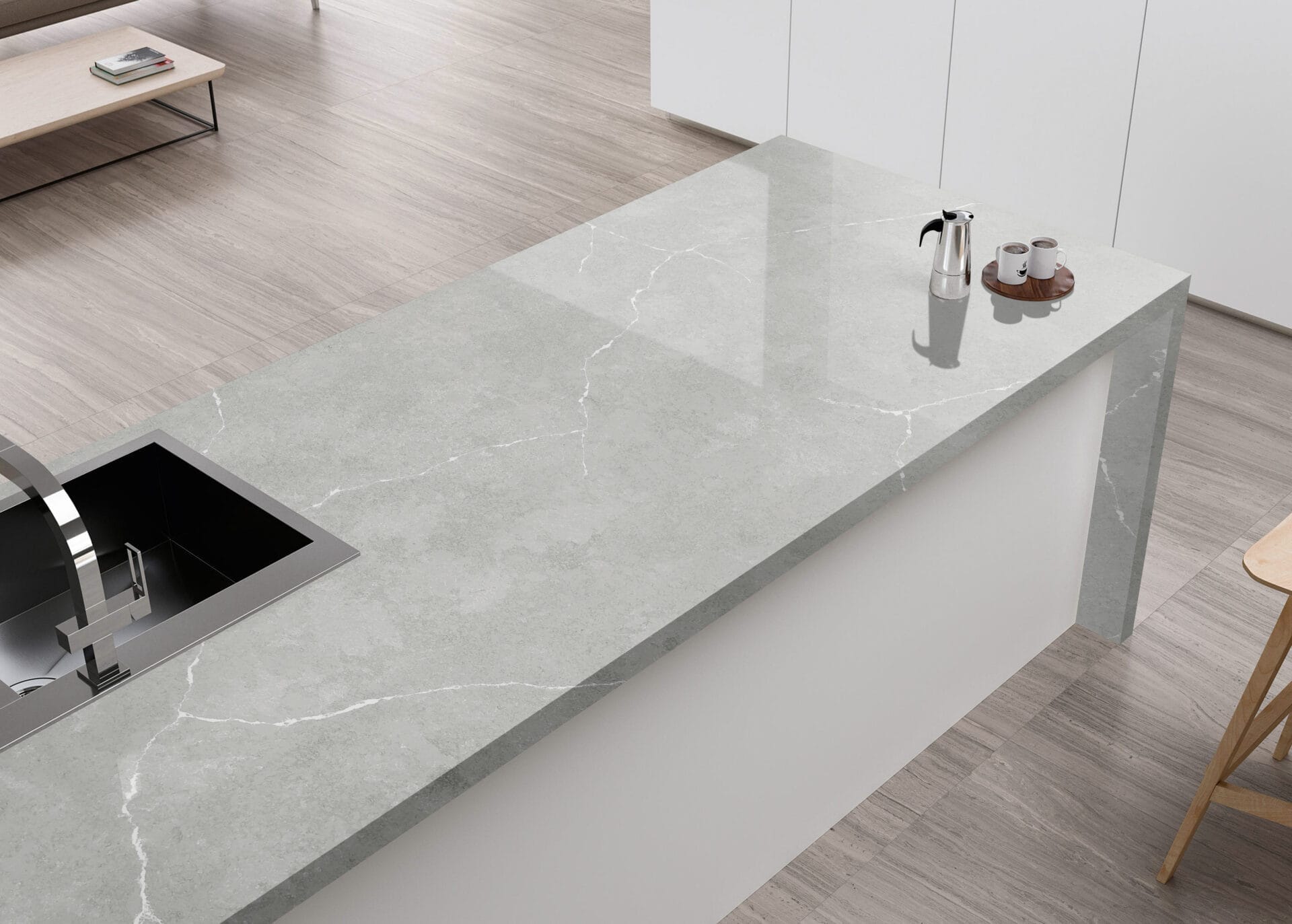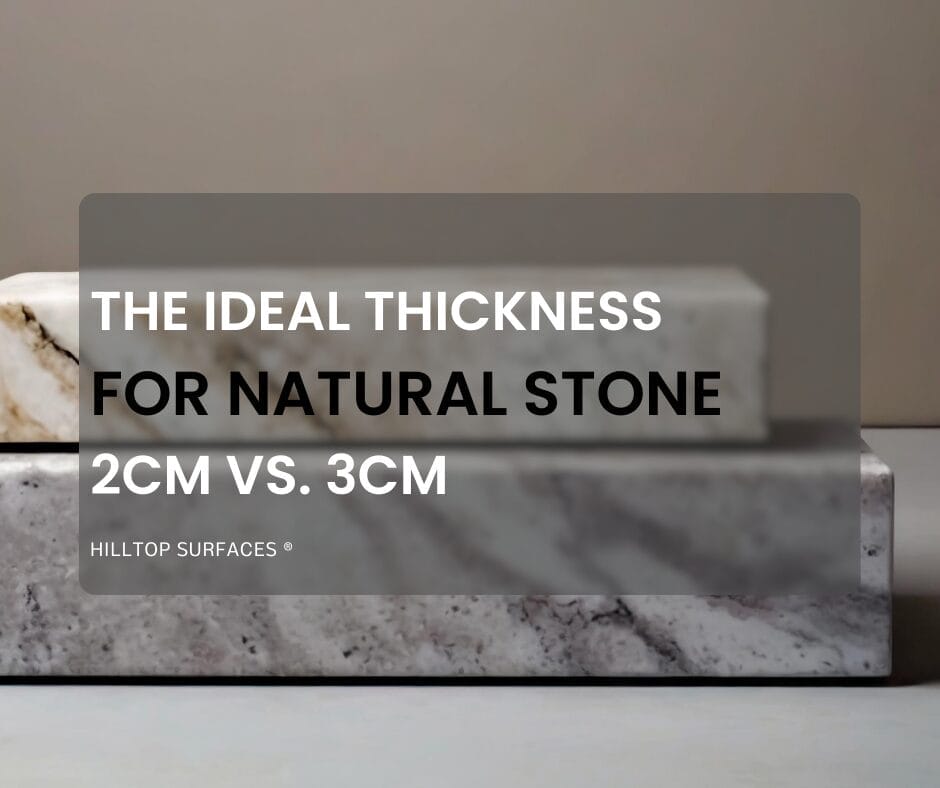Quartz Countertops have become synonymous with modern elegance and durability, transforming kitchens and bathrooms into sophisticated spaces. In this guide, we’ll study Quartz Countertops, covering everything from its composition and durability to its maintenance. Whether you’re considering remodeling your kitchen or planning a new project, this guide is your key to unlocking the secrets of quartz. Let’s start our journey to discover the beauty and functionality that Quartz Countertops bring to your home.
What is Quartz? Understanding the Essence of Quartz Countertops
Definition of Quartz:
Quartz is an engineered stone made from a combination of natural quartz crystals and resins. It’s known for its beauty and practicality in the world of countertop surfaces. Imagine a Countertop Materials that seamlessly combines the elegance of Natural Stone with the resilience of modern technology—enter quartz.
Origin of Quartz:
Quartz Countertops are not mined like Natural Stones. Instead, they are created in a meticulous process that involves combining about 90-95% crushed natural quartz with resins, polymers, and pigments.
What is Quartz Made of? Decoding the Composition of Quartz Countertops
The primary ingredient in Quartz Countertops is natural quartz crystals, known for their inherent strength and dazzling appearance. Resins and polymers act as binding agents, holding the quartz crystals together and enhancing the countertop’s durability.
Quartz Durability: The Resilience that Defines Quartz Countertops
Does quartz scratch easily?
Quartz countertops are engineered to be highly scratch-resistant, standing up to the rigors of daily use. While not entirely scratch-proof, they offer impressive durability against common wear and tear.
Stain Resistance:
Quartz is inherently non-porous, making it resistant to stains from spills like wine, coffee, or oil.
Quartz Care and Maintenance
Daily Cleaning Routine:

Quartz Care and Maintenance
Implementing a simple daily cleaning routine with a small amount of mild soap and water keeps your Quartz Countertop looking fresh and vibrant.
Avoiding Harsh Cleaners:
Stay away from harsh chemicals and abrasive cleaners when caring for your Quartz Countertop as they can compromise its brilliance.
Discover the dos and don’ts of quartz countertop care, enhancing your understanding of proper maintenance practices.
Cost of a Quartz Countertop
Quartz countertops often present a more budget-friendly option. The engineered nature of quartz allows for a wider range of color options, patterns, and consistent appearance, making it an attractive and cost-effective choice.
Comparing Quartz to Granite: Is quartz cheaper than granite?
While prices can vary, Quartz is generally competitively priced compared to Granite. Factors such as color, pattern, and brand influence the overall cost. Navigate the cost considerations and understand the value that quartz brings to your investment.
Mars Quartz offers a wide array of colors, patterns, and different price ranges. Explore the diverse color palette of Mars Quartz and envision the possibilities for your kitchen or bathroom.
Quartzite vs. Quartz: Which is Better?
Making a choice between quartzite and quartz for your countertops ultimately comes down to your specific needs, preferences, budget and lifestyle. Quartzite, a natural stone formed from sandstone and subjected to intense heat and pressure, offers a stunning, natural aesthetic reminiscent of marble. It boasts exceptional durability, heat resistance, and resistance to scratching, making it an ideal choice for homeowners who desire both elegance and robust performance.
On the other hand, engineered quartz, like Mars Quartz, is a man-made product that combines crushed natural quartz with resins and polymers. This engineered composition provides a wide range of color options, patterns, and consistency in appearance. Quartz Countertops are non-porous, making them hygienic, highly resistant to stains and requiring minimal maintenance. They also offer impressive scratch resistance, making them suitable for busy kitchens.
When considering the choice between quartzite and quartz, price is a significant factor that can influence the decision-making process. Generally, quartzite tends to be more expensive than quartz. The price of quartzite is influenced by its natural origin, unique veining patterns, and the extraction and fabrication processes involved. While the luxurious appearance of quartzite may justify its higher price for some homeowners, it’s crucial to balance aesthetics with budget considerations.
The affordability of quartz makes it an appealing option for those who seek a balance between quality, style, and budget considerations. Ultimately, the decision between quartzite and quartz should take into account not only the visual appeal and durability but also the financial aspects that align with your overall budget for your countertop project.
Explore the nuances of both options to make an informed decision that aligns with your aesthetic preferences and lifestyle.
Conclusion
Considering all this, it can be said that quartz stands as one of the top choices for kitchen and Bathroom Countertops. The choice between quartz and other materials for your countertop hinges on a delicate balance of aesthetics, durability, and budget considerations. Your decision should be guided by your personal style preferences, maintenance expectations, and budget.
From its composition to care and maintenance, understanding the intricacies of quartz ensures you make an informed choice for your home. As you embark on this decision-making journey, consider Mars Quartz. With its diverse color options and competitive pricing, Mars Quartz becomes more than a countertop—it’s a statement of elegance in your home.












